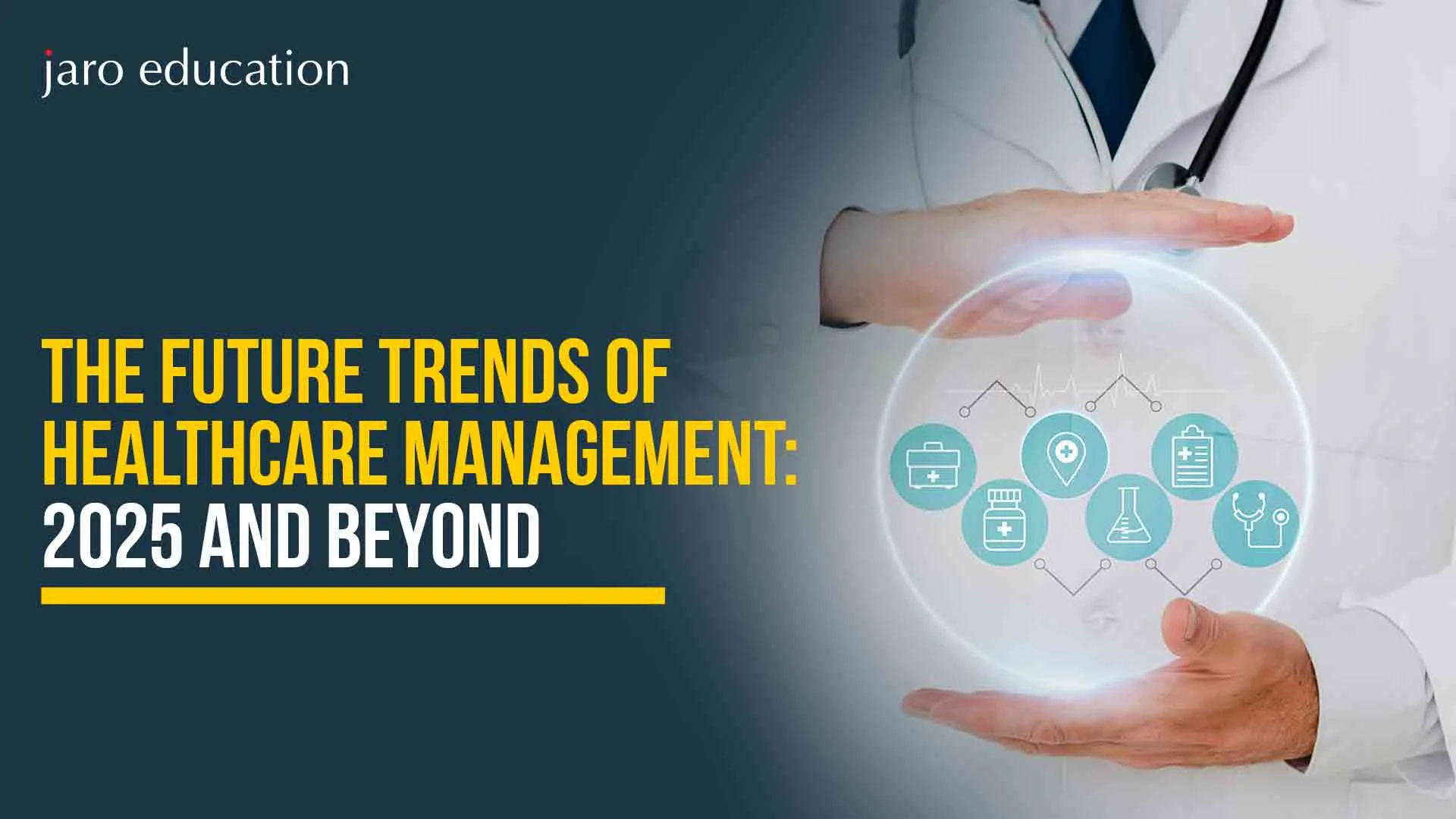The Future Trends of Healthcare Management: 2026 and Beyond

Table Of Content
- What is Healthcare Management and Why Does It Matter in 2026?
- Role of Healthcare Managers in the Era of Digital Health
- Key Trends in Healthcare Management for 2026 and Beyond
- Emerging Technologies Driving the Future of Healthcare
What is Healthcare Management and Why Does It Matter in 2026?
Healthcare management refers to the administration, leadership, and oversight of healthcare systems, hospitals, public health institutions, and related facilities. It includes planning, coordination, and supervision of medical and health services. In 2026 and beyond, this field is no longer limited to traditional operational roles—it encompasses strategic transformation, digital integration, and innovation-led decision-making.
The increasing complexity of the healthcare industry trends—from AI-powered diagnostics to value-based care models—demands leaders who can manage resources efficiently, improve patient outcomes, and navigate regulatory compliance. Thus, strong healthcare management has become the backbone of any thriving healthcare ecosystem.
Role of Healthcare Managers in the Era of Digital Health
As we move into a highly digital and interconnected healthcare landscape, the responsibilities of healthcare managers have expanded significantly. They are now expected to:
- Implement digital transformation strategies
- Drive interoperability across systems
- Manage data security and compliance
- Integrate AI and predictive analytics
- Facilitate cross-functional collaboration
This shift is a direct result of the recent trends in the healthcare industry, where digital literacy, change management, and technology governance are now vital components of leadership in healthcare settings.

Key Trends in Healthcare Management for 2026 and Beyond
Emerging Technologies Driving the Future of Healthcare
Education and Training for Next-Gen Healthcare Leaders
Case Studies: Global Healthcare Management in Action
Challenges Ahead for Healthcare Management
Even as the future of healthcare grows brighter, challenges remain:
- Data overload and decision fatigue
- Ethical dilemmas in AI-based care
- Resistance to change from traditional staff
- Ensuring access and equity in digital rollouts
Leaders must be equipped not just with knowledge of healthcare industry trends, but also with resilience, ethical judgment, and emotional intelligence.
How to Stay Ahead in Healthcare Management?
Conclusion
The rapid acceleration of trends in healthcare management signals a pivotal shift in how healthcare is delivered, managed, and experienced. With technologies like AI, AR, blockchain, and genomics becoming mainstream, leaders must evolve to meet these challenges with strategic foresight.
Moreover, the importance of continuous education cannot be overstated. The Executive Programme in Healthcare for Industry 5.0 Programme by CEP, IIT Delhi, provides a powerful platform for those ready to lead this transformation.
Whether you’re a hospital administrator, policy planner, or tech innovator, the time to embrace the future of healthcare is now. With the right tools, mindset, and knowledge, you can play a vital role in building a smarter, more resilient, and compassionate healthcare system for the world.
Frequently Asked Questions
Find a Program made just for YOU
We'll help you find the right fit for your solution. Let's get you connected with the perfect solution.

Is Your Upskilling Effort worth it?

Are Your Skills Meeting Job Demands?

Experience Lifelong Learning and Connect with Like-minded Professionals


